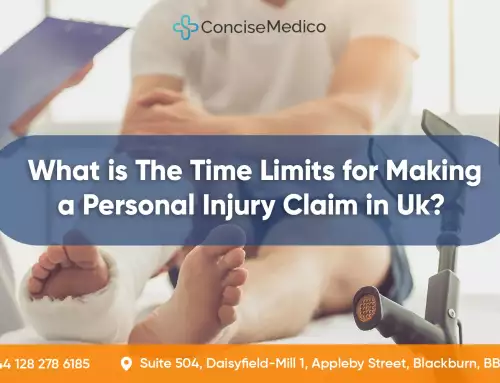TABLE OF CONTENT
- What Does the Law Say About Employers Liability?
- Everything to Know About Mental Health Problems at Workplace
- Impact of Neglected Employers Liability on Mental Health
- What Primarily Causes Work-Related Stress
- What Are the Common Consequences of Work-Related Stress?
- What To Do if You’re Suffering from Work-Related Stress?
74% of people have been overwhelmed and unable to cope with work-related stress reports the Mental Health Foundation.
More than 79% of the UK population report work-related stress as the most common cause, and they have frequently felt it. But did you know employers in the UK have a legal responsibility to ensure employees’ mental wellbeing, health and safety at work? Employers Liability comprises providing a safe working environment for the employees and must do everything they can to support their health and mental wellbeing.
What Does the Law Say About Employers Liability?
Considering the current work ethics, this Employer’s Duty of Care includes taking care of the employees even if they are working from home. Therefore, if an employee is suffering from a mental health condition, the employers must seriously take it as they have the duty to ensure the mental wellbeing of their employees. Therefore, following the law, employers in the UK must conduct the following risk assessments to protect their employees’ health and mental wellbeing:
- DSE Risk Assessments
- Stress Risk Assessment
- COVID-19 Risk Assessments
Employers should also consider conducting Wellbeing and Mental Health Risk Assessments, even though it is not legally required. However, most mental health conditions satisfy the Equality Act 2010 definition of disability, i.e., conditions that substantially impact a person’s day-to-day life and persist for 12 months. This means that if you have a mental health condition that impacts your day-to-day life, you are likely to be protected from disability discrimination and are entitled to certain reasonable adjustments from your employer following the law.

Now that we have discussed employers liability and what is covered by the law, let us move on to work-related stress, its causes, what you can do to cope with it and how you can claim for the stress caused by third-party’s failings. So, without further ado, let us slip into the topic:
Everything to Know About Mental Health Problems at Workplace
Approximately 90,000 hours of the average person’s life are spent at work. That is a substantial period. You might find satisfaction or self-fulfilment through your employment. However, it can also result in severe mental health problems. To maintain your productivity at work, you must know how to manage mental health difficulties.
Impact of Neglected Employers Liability on Mental Health
Poor working conditions and other factors may have a detrimental impact on employee morale. This results in poor job performance, health problems, and poor communication, which raises stress levels, frustrations, and low self-esteem.
An individual’s working environment and employment functions are the primary cause of and or significantly contribute to Work-Related Stress, a psychological and physical health problem.
Significant work-related stress may come from the following factors, whether actual or hypothetical, real or intangible, and the sufferer frequently experiences problems coping with day-to-day living:
- Pressure and unhappiness in the workplace
- Humanly impossible and tight deadlines
- Persistent worry of losing one’s job
- Verbal or physical abuse from coworkers
- General discontent and discomfort at the workplace
When you feel constantly worried and stressed out at work, you should self-check the early signs and symptoms of work-related stress. The symptoms of work-related stress include the following:
- Always feeling like walking on eggshells
- Difficulty focusing and attention-deficit
- Dependence on addictive substances
- Frequently forgetting what you planned for
- Constantly feeling a rush of emotions (positive and negative)
What Primarily Causes Work-Related Stress
Stress at work can harm your mental health and lead to several serious medical conditions like diabetes, hypertension, blood pressure, and other heart conditions. Although numerous factors can contribute to work-related stress and result in claims for compensation for stress at work, some factors are more frequent than others.

The following are a few key causes of work-related stress for which you can file a claim. This list is not all-inclusive, so you may still be eligible for compensation if you experience stress at work for another reason. The common contributors to work-related stress include:
In some jobs, employees are expected to perform too much. People may become anxious or panicky because of strain brought on by an excessive amount of work or by meeting deadlines.
Low Workload
Surprisingly, occupations that don’t provide enough labour to keep a person occupied for the entire day are also quite likely to cause work-related stress because of boredom and a lack of stimulation.
Inconsistent and Inadequate Support
Due to the lack of flexibility they experience, persons who work in highly regulated professions frequently experience stress related to their occupations. On the other hand, people who experience little to no support from their superiors and coworkers may feel alone.
Inadequate Training or Experience
People who are required to perform a profession for which they are not completely qualified may need more experience or training to handle the daily workload.
Poor Management Chains
People who must report to multiple managers or are managed by ineffective managers are under lousy management or management chains. Being overmanaged is another significant factor in workplace stress.

Promotion Over Qualifications
People frequently find themselves promoted to positions for which they need the qualifications. This is particularly true for those elevated into managerial positions without any prior experience.
Worrying about Job Security
People who may be fired, laid off, or have their employer go out of business frequently experience stress at work.
Workplace Abuse
It includes bullying and harassment by coworkers and bosses and is a substantial contributor to stress at work.
Toxic Work Cultures
Corporate cultures can be toxic since they vary from firm to company and change over time. Working in an environment where blame is prevalent increases the likelihood of work-related stress due to workplace toxicity.
Uncomfortable Workplace
When your workplace is too hot, too chilly, damp, or uncomfortable in any other manner, it is said to be an uncomfortable workplace
What Are the Common Consequences of Work-Related Stress?
Let’s bust one myth: the idea that “everything will be okay even if your stress is alleviated” is wrong!
The impacts of work-related stress on one’s mental and physical health can be devastating, persistent, and worst cases, even life-threatening. Stress can easily lead to anxiety and depression and sequelae of physical health impacts. In addition, it can lead to chronic health conditions, including:
- High/ low blood pressure and heart conditions
- Breathing problems such as shortness of breath, rapid breathing, etc.
- Unexplained headaches, including migraines and hypertension
- Skin conditions, including inflammation, swelling, and pain
- Mental health issues, including OCD, anxiety and depression
In addition to mental symptoms, some bodily changes help indicate that the stress is going bad and taking over your health. The physical/ bodily symptoms that indicate that stress is going out of hand include the following:
- Increased chest pains due to frequent increases in heart rate
- Constant headaches and muscle aches, and stiffness
- Imbalanced shortness and rapidity of breath
- Change in eating habits and sleep routines
- Grinding of teeth and frequent gastrointestinal issues
Quick Check: If these symptoms are accompanied by constant tiredness, anxiety, dizziness, hopelessness, sadness and feeling out of energy, you may need to get assessed for anxiety and depression.

What To Do if You’re Suffering from Work-Related Stress?
You must realise that to establish a claim for compensation for stress at work, you must also demonstrate that your job brought on the stress and affected you. Therefore, it is crucial to compile as much supporting documentation as you can for your personal injury claim. Having the appropriate evidence could help you win and streamline the process. Examples of supporting documentation for personal injury claims of work-related stress and employers liability include:
- CCTV recordings or Photographs of any provocative events
- Psychologist Expert Witness Testimony if applicable
- Expert Medical Reports from your GP or Psychologist
Therefore, whether you want to file a claim for compensation for stress at work, there are some activities you may take to aid yourself after experiencing work-related stress.
- The first step is to examine yourself to see whether your stress may be related to your job.
- Once you’ve done that, it’s crucial to keep a record of your stress chronology. Try to recall the exact moment the symptoms began to appear and any potential triggers that may have occurred at that very moment.
- Once finished, you must document when/whether you spoke with your employer about the issue. Note down any subsequent actions they took, if any at all.
- You must get expert assistance and discuss your symptoms with a mental health professional. Your compensation would highly depend on recommendations from a psychologist or a GP.
- Finally, document how it has affected your interactions with others, your social life, your enjoyment of daily activities, and any bodily effects on your sleep, hunger, etc. These could serve as the foundation for your expert witness statement.

Suffering From Work-Related Stress? Take an Action Today!
When filing a claim for work-related stress, it must be shown that you have psychological injuries/illness that has been medically diagnosed. You must also prove that your work had an obvious risk of being the cause of such an illness/injury. Additionally, you’d need to prove that your employer should have known or did know about this risk and that you were exposed to it.
Finally, when the foreseeable risk exists, you need to prove that your employer did not act accordingly to reduce such risk and breached employers liability. Therefore, we advise engaging a personal injury expert to assist you with your claim. A solicitor can assist you at every stage of the claims procedure because they have an in-depth understanding of it.
Most claims never need to go to court, but if yours does for any reason, a lawyer can defend you there and aid in the settlement negotiations. So, it’s best to contact us. Contact our psychologists at any time for work-related stress consultancy and initial assessment.




